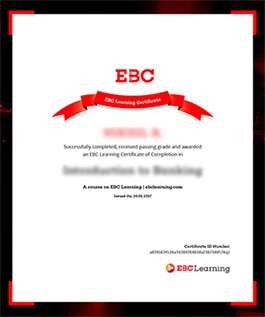Arbitration Step-by-Step, 2nd Edn.
About Course
Arbitration has developed as the most powerful and effective tool of alternate dispute resolution. Arbitration is the settlement of disputes by an impartial third party in a cost effective and time efficient manner providing effective legal relief to the disputing parties.
Important concepts in arbitration law, how an arbitration proceeding commences, appointment and dismissal of an arbitrator or an arbitral tribunal, enforcement of an arbitral award and appeal and finally, termination of arbitral proceedings and much more have been discussed in this course. The course covers not only the Arbitration and Conciliation Act, 1996 but also the latest updates and developments pursuant to the 2015 and 2019 amendments.

When will mankind be convinced and agree to settle their difficulties by arbitration?
Benjamin Franklin- 1. Introduction
- 1.1 Introducing the course
- 2. Introducing arbitration law
- 2.1 What is arbitration?
- 2.2 Limiting the need for judicial intervention
- 2.3 Choosing the correct mode of ADR
- 2.4 Deciding if the dispute can be referred to arbitration
- 2.5 Referring particular disputes to arbitration
- 2.6 Exercises
- ☆ Feedback
- 3. The arbitration agreement
- 3.1 Concept of arbitration agreement
- 3.2 Negotiating an arbitration agreement
- 3.3 Drafting an arbitration agreement
- 3.4 Paying stamp duty and registration
- 3.5 Enforcing an arbitration agreement
- 3.6 Doctrine of severability
- 3.7 Exercises
- 4. Invoking arbitration
- 4.1 Invoking arbitration with a notice
- 4.2 Determining the arbitration proceedings’ commencement date
- 4.3 Calculating the limitation period
- 4.4 Replying to a notice invoking arbitration
- 4.5 Parties to the arbitration proceedings
- 4.6 Exercises
- 5. Filing or dealing with objections to arbitration
- 5.1 Objecting to a suit filed in the civil court
- 5.2 Court’s refusal to enforce the arbitration agreement
- 5.3 Applying for anti-arbitration injunctions
- 5.4 Judicial intervention through writ petitions?
- 5.5 Exercises
- 6. Determining the procedure for arbitration proceedings
- 6.1 Understanding agreeable procedures
- 6.2 Institutional and ad hoc arbitration procedures
- 6.3 Determining procedure where it’s not decided
- 6.4 Fast track procedure
- 6.5 Challenging irregular procedure
- 6.6 Exercises
- 7. Determining the arbitral tribunal
- 7.1 Appointing an arbitrator named in the arbitration agreement
- 7.2 Approaching the court to appoint an arbitrator and limitation period
- 7.3 Extent of court’s power to appoint the arbitral tribunal
- 7.4 Expiry of stipulated period under Section 11
- 7.5 Substituting a named arbitrator
- 7.6 Agreeing on the composition of the arbitral tribunal after invocation
- 7.7 Objecting to validity of agreement while agreeing on composition
- 7.8 Grounds for challenging the arbitrator
- 7.9 Exercises
- 8. An arbitrator’s fee
- 8.1 Fixing an arbitrator's fees, costs or charges
- 8.2 Exercises
- 9. Removing or substituting an arbitrator
- 9.1 Grounds for removing arbitrator
- 9.2 Procedure for removing arbitrator
- 9.3 Substituting an arbitrator during the pendency of arbitration proceedings
- 9.4 Exercises
- 10. Jurisdiction of arbitral tribunal and courts
- 10.1 Applying to arbitral tribunal to determine its jurisdiction or competence
- 10.2 Deciding the venue, place or seat of arbitration
- 10.3 Deciding territorial jurisdiction
- 10.4 Exercises
- 11. Proceedings
- 11.1 Attending a preliminary meeting
- 11.2 Preparing a draft procedural order
- 11.3 Filing pleadings in arbitration proceedings
- 11.4 Producing evidence before the arbitral tribunal
- 11.5 Exercises
- 12. Interim reliefs
- 12.1 Applying for interim reliefs before the court
- 12.2 Framing prayer for interim reliefs
- 12.3 Choosing the forum
- 12.4 Exercises
- 13. The arbitral award
- 13.1 Understanding an arbitral award
- 13.2 Knowing the procedure for a valid award
- 13.3 Applying for an award of interest
- 13.4 Awarding costs in arbitration
- 13.5 Correcting mistakes in an arbitral award
- 13.6 Difficulty in correcting an award
- 13.7 Exercises
- 14. Enforcement and execution of an arbitral award
- 14.1 Finality and enforceability of an award
- 14.2 Enforcing and executing a domestic award
- 14.3 Exercises
- 15. Termination
- 15.1 Termination proceedings
- 15.2 Exercises
- 16. Appeals and challenges
- 16.1 Appealing against certain orders
- 16.2 Grounds for challenging an award
- 16.3 Challenging an arbitral award
- 16.4 Exercises
- 17. Conclusion
- 17.1 Conclusion
- ☆ Feedback
- Audit Section
- Audit Sub-section
Why Take This Course?
For law students, the subject of arbitration is intriguing and tricky at the same time. If you take this course as a law student, you will learn the basics of arbitration law and you will also be equipped with an in depth understanding of the procedures and practices relevant to this area of law. This course is your ideal guide for examinations as well as for excelling in placement interviews.
Since this course has been designed and developed to provide guidance on arbitration at each stage of proceedings, if you miss out on this course, you miss out on learning the practical aspects of each stage of arbitration proceedings. If you are a student and have not yet taken this course, you will miss the opportunity of making yourself thorough in the subject of arbitration before taking your examinations. During your placement interview, your future employer may ask questions related to arbitration, and not taking this could make you miss an edge over other prospective candidates.
For lawyers, this course will answer the question of what to do next! This course acts as a practical guide for lawyers and practitioners, and by the end of this course, you will develop a thorough understanding of the fundamentals of arbitration law and you can confidently face challenges in arbitration knowing what issues may arise and how to confront and tackle them with ease.
This is a supplement-rich course comprising flowcharts, case references and formats.
Instructors

Mallika Taly
Advocate, Bombay High Court
Mallika Taly is an advocate practising in the Bombay High Court for almost a decade. She is a litigator and is frequently involved in arbitration matters. She is also a law academician and has published various books on arbitration with Eastern Book Company.

At all events, arbitration is more rational, just, and humane than the resort to the sword.
Richard CobdenCertificate
Complete this course and exercises to earn a certificate. Share it with your friends, colleagues, and employers.

Limit Reached or Trial Expired
You have reached the limit of 2 audit enrollments or your trial period has expired.

